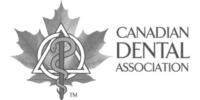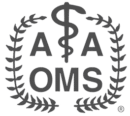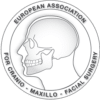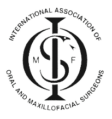Orthognathic Surgery Guide
This information has been developed to help you achieve a greater degree of understanding about Orthognathic surgery and to prepare you for the surgery itself. It describes a typical hospital course for surgery. It is anticipated that you will have questions after reading this information, therefore, you are encouraged to ask us about any areas of concern. We believe strongly that a well-informed patient will experience fewer surprises and will do much better both physically and emotionally when faced with major surgery.
Prior to your Hospitalization
We encourage and ask our patients undergoing this type of surgery to begin the following program four weeks prior to surgery:
- Begin a daily program of exercise. It can be jogging, swimming, hiking, running or walking, but do so at a level corresponding to your degree of fitness. Being physically fit will play a major role in how quickly you recover from the surgery.
- Take one standard dose multi-vitamin daily along with a balanced nutritional intake.
- Cigarette smoking may adversely affect your anaesthetic and your recovery period. It can also delay healing and increase the risk of infection. Smokers should make every effort to reduce or stop their tobacco consumption to help avoid these potential problems.
Day of Admission to the Hospital
On the day of admission or as an outpatient within a week of planned surgery, a history and physical exam will be completed by your surgeon or one of the hospital physicians. The primary intent of this examination is to screen patients for any potentially complicating systemic diseases. Should questions arise as a result of this examination, appropriate consultation with other physicians will be made. Laboratory examinations such as blood tests and urinalysis may be done. Also, a chest x-ray and electrocardiogram may be necessary. A sample of blood may be taken for testing so that proper blood may be reserved should a transfusion be required during the procedure. This is an extremely infrequent occurrence. Please inform us if a blood transfusion is contrary to your religious beliefs.
Diet
A diet booklet will be provided and you are expected to familiarize yourself with it. Any food that you normally eat can be blenderized or thinned in order to be eaten during the early stages of healing. The juices of fresh fruits and vegetables are good sources of fresh vitamins, minerals and fluids, and can be a major source of these nutrients once you are home.
Commercial dietary supplements (such as Carnation Instant Breakfast, EnRich, Boost, EnSure, Sustical, etc.) may also be of assistance to those individuals who find normal blenderized food difficult to consume. It is recommended, however, that a concerted effort be made to become accustomed to normal diets rather than to have to rely on commercial dietary supplements. It is important for you to consume a sufficient amount of calories and protein while you are convalescing to assist with healing. Post-operatively, you will eat more frequently (six times per day) while consuming lesser amounts.
It is NOT likely that your jaws will be wired because rigid internal fixation has been applied. Please keep in mind that your jaw initially will not have the normal strength of your unoperated jaw. It is, therefore, important that, although you may be able to open your mouth, you should not attempt to generate significant chewing force. You could damage the fixation if chewing forces are generated. We would, therefore, strongly recommend that for the first few days, your diet consist of liquids and very soft foods, but you will find that you can progress quickly into a diet of foods that can be mashed with a fork and consumed without chewing. This will include pasta, well-cooked or ground meats, fish, puddings, eggs and mashed or well-cooked vegetables. At around the fourth week, soft sandwiches made with Wonder Bread or its equivalent are acceptable. At around eight weeks, most patients can resume their normal diet.
Diet Protocol
- Post-Op (first 1-5 days) Liquids, puree
- Post-Op (first 4 weeks) Mashed foods
- Post-Op (4-8 weeks) Soft sandwiches, light chewing
- Post-Op (8 weeks+) Resume regular diet
Anaesthesia
An anaesthesiologist will discuss with you the form of anaesthesia that he/she will use as well as the side effects. Please direct any questions regarding the anaesthesia to this member of the anaesthetic team. After midnight of the day prior to the procedure, you will be required to not have anything to eat or drink. This will assure an empty stomach at the time of surgery.
Day of Surgery
You may receive pre-operative medications approximately one hour prior to your surgery. These medications, in addition to being an important preparation for the anaesthesia, will reduce normal presurgical nervousness. You will be taken to the operating room. There, an intravenous catheter (I.V.) will be inserted into the back of your hand or arm. This is to provide a means of delivering both intravenous fluids and medications including the induction of your anaesthesia. An I.V. eliminates the need for repeated injections. Because general anaesthesia is required and because surgery will be done in the mouth, it is usually necessary to pass a breathing tube (endotracheal) from the nose into the trachea (windpipe). This will be done while you are asleep. A second tube may be passed from the nose into the stomach and will be used to keep your stomach empty (NG tube). Finally, a catheter may also be placed in an artery located in your wrist or foot to facilitate continuous monitoring of your blood pressure.
In some situations, if your surgery is later in the day, you will have the intravenous started at bedside by a member of the nursing staff. This is to allow for salt and sugar fluid to be administered intravenously as you are not taking any fluid by mouth pre-operatively. If this is the case, there may be anti-swelling medication or antibiotic medication given to you pre-operatively on the ward. If this is not given to you at bedside, it will be given to you in the operating room.
Following the surgery, when you are in the post-anaesthetic recovery phase, the endotracheal tube will be removed as soon as possible. However, the I.V., and in some cases, NG tube will remain in place a little longer. Patients have a varying degree of recall of the day of surgery. Some remember from the moment that they awake, while others have no recall of post-operative events until the following morning. Frequently, patients will be given sedative medications if they are having any of the tubes left indwelling for several hours. This helps to improve comfort and eliminates virtually any recall of events of the immediate post-operative period.










